Groom and clean your cat’s eyes and ears.
"Learn how to safely groom and clean your cat's eyes and ears. Follow our step-by-step guide for a stress-free and effective cleaning routine that promotes your cat’s health and comfort."
12/29/20243 min read


Cats are naturally clean creatures, but some grooming tasks, like cleaning their eyes and ears, require a little help from you. Regular grooming not only keeps your cat comfortable but also helps you spot potential health issues early. In this guide, we’ll cover how to safely and effectively clean your cat’s eyes and ears while ensuring it’s a stress-free experience for both of you.
1. Why Cleaning Your Cat’s Eyes and Ears Is Important
Prevent Infections: Regular cleaning removes debris, discharge, and wax that can harbor bacteria.
Improve Comfort: Keeping the eyes and ears clean reduces irritation and discomfort.
Spot Early Issues: Grooming allows you to check for redness, swelling, or unusual discharge.
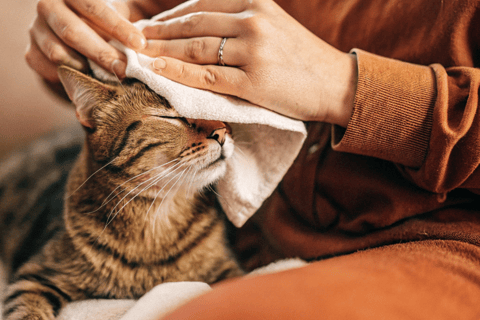

Learn more about "How to Spot Signs of Illness in Cats."
2. Tools You’ll Need
Before starting, gather these supplies:
For Eyes:
Soft, lint-free cloth or cotton pads.
Pet-safe saline solution or warm water.
For Ears:
Cotton balls or pads (avoid cotton swabs).
Vet-approved ear cleaning solution.
Pro Tip: Never use household cleaning products or alcohol-based solutions as they can irritate your cat’s sensitive skin.
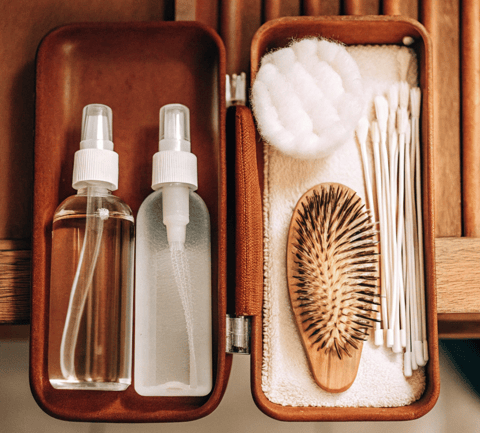

3. How to Clean Your Cat’s Eyes
Step 1: Prepare Your Cat
Choose a calm, quiet area.
Wrap your cat in a soft towel if they’re prone to squirming.
Step 2: Check for Debris or Discharge
Inspect the eyes for redness, cloudiness, or discharge.
Use a soft, damp cloth or cotton pad soaked in saline solution to gently wipe away debris.
Step 3: Wipe from the Inner to Outer Corner
Start at the corner of the eye near the nose and wipe outward.
Use a new section of the cloth or a fresh cotton pad for each eye to avoid spreading bacteria.
Check out PetMD: Cat Grooming Tips.
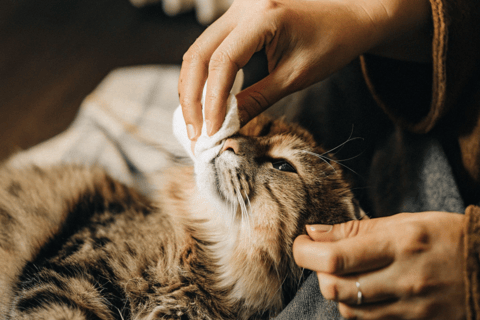

4. How to Clean Your Cat’s Ears
Step 1: Inspect the Ears
Look for dirt, wax buildup, or redness.
Healthy ears should be pale pink and free of odor or excessive wax.
Step 2: Apply the Cleaning Solution
Gently lift the ear flap and squeeze a few drops of ear cleaning solution into the ear canal.
Avoid inserting anything deep into the ear.
Step 3: Massage the Base of the Ear
Massage the base of the ear for 30-60 seconds to help loosen debris.
Let your cat shake their head to dislodge wax and dirt.
Step 4: Wipe Away Excess
Use a cotton ball or pad to clean the visible part of the ear.
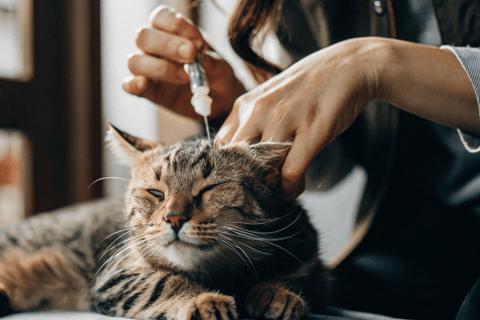

Learn more about "The Ultimate Guide to Grooming Your Cat."
5. Signs of Potential Issues
While grooming, watch for these warning signs:
Eyes: Redness, swelling, yellow/green discharge, or excessive tearing.
Ears: Redness, foul odor, dark wax resembling coffee grounds (a sign of ear mites).
If you notice any of these symptoms, consult your veterinarian immediately.
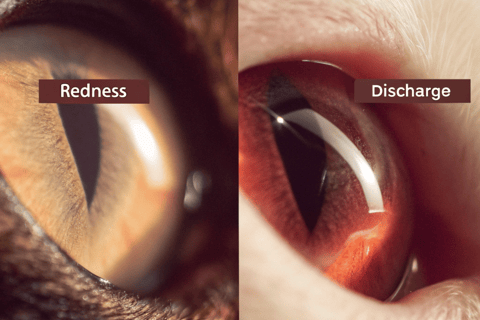

6. Make Grooming Stress-Free
Use Positive Reinforcement
Reward your cat with treats and gentle praise during and after grooming.
Start Slow
Begin with short sessions to help your cat get used to the process.


Check out ASPCA: Caring for Your Cat.
7. Create a Regular Grooming Schedule
Clean your cat’s eyes and ears as needed, usually once a week or whenever you notice buildup.
Long-haired cats or cats prone to tearing may need more frequent eye cleaning.
Pro Tip:
Monitor your cat’s behavior. Excessive scratching of the ears or rubbing the face may indicate discomfort or an underlying issue.
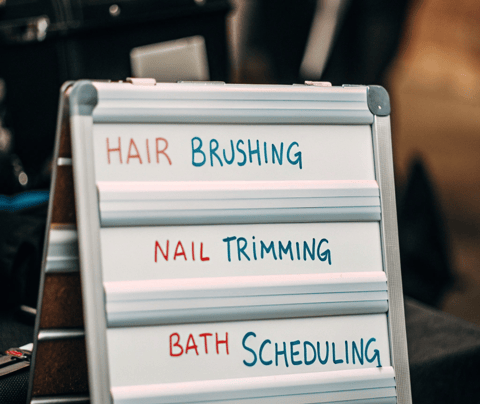

Conclusion
Regular grooming of your cat’s eyes and ears is an essential part of their care routine. With the right tools, gentle techniques, and consistent practice, you can ensure your cat stays healthy, happy, and comfortable. By taking the time to inspect and clean, you’re also strengthening the bond with your furry friend.
